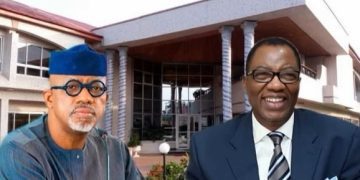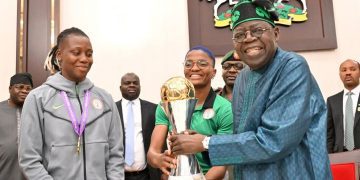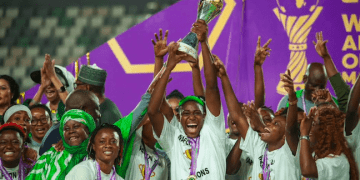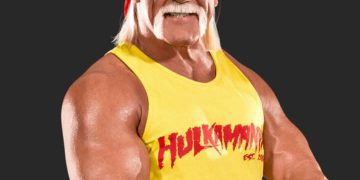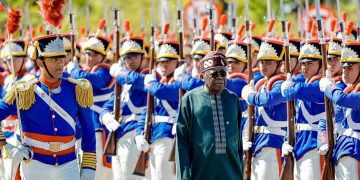…The 2023 Presidential Election wasn’t perfect. But it wasn’t stolen either. Tinubu didn’t win because he was the most loved—he won because he was the most strategic. He didn’t win every state, and he didn’t need to. He came first or second in most places. In a multi-party race, that’s what it takes
By Idowu Ephraim Faleye
The recent outburst by former Kaduna State Governor, Nasir El-Rufai, claiming that Peter Obi actually won the 2023 Presidential Election, is one of the most absurd political twists since the election concluded. What makes it even more baffling is that the same El-Rufai has suddenly taken to his X (formerly Twitter) handle to declare that Obi was robbed of victory and that he regrets supporting what he now describes as a rigged process. But Nigerians are no strangers to political drama, and this latest act from El-Rufai is just another poorly scripted episode in a long series of political theatrics.
Let’s begin with the figures El-Rufai shared. According to his post, Peter Obi won 19 states, including the FCT. Bola Tinubu allegedly won only 8, Atiku Abubakar 7, and Rabiu Kwankwaso 2, while Obi and Atiku supposedly tied in Katsina. On the surface, these numbers seem designed to stir controversy. But when you compare them with actual voting data, on-ground realities, and credible electoral analysis, the narrative quickly falls apart.
Nigerians are not fools. They watched the campaigns, followed the rallies, and understood the issues. They also saw how fragmented the opposition was. Ironically, the same opposition that refused to unite before the election is now lamenting separately
Take Ekiti State, for instance. El-Rufai claimed that the Labour Party won 42% of the votes there. Anyone familiar with Ekiti politics would burst into laughter at this. The Labour Party couldn’t have secured even 1% of the votes in Ekiti during the presidential election. That’s not just a stretch—it’s a fabrication. The Labour Party barely had any recognizable structure or presence in the state. The political terrain was firmly in the hands of the APC, which had just months earlier won the gubernatorial election. The APC didn’t just win the governorship; it swept all the Senate seats and the six House of Representatives positions as well.
This dominance wasn’t accidental—it reflected deep-rooted party structures. If any other parties had a noticeable presence in the state, they were the SDP and PDP, both of which came second and third respectively in the earlier gubernatorial contest. So, where is the basis for claiming that the Labour Party won 42% of the votes in Ekiti? The claim is baseless.
Let’s move from opinion to evidence-based electoral analysis. Former INEC Chairman, Professor Attahiru Jega, offered a fair review of the 2023 election, admitting that it was significantly more competitive than the 2019 edition. Unlike 2019, which was largely a two-horse race between APC and PDP, the 2023 contest was a four-way battle among APC, PDP, LP, and NNPP. This naturally led to a wider spread of votes and more complex dynamics. According to official results, Tinubu garnered 37% of the total votes, Atiku 29%, Obi 25%, and Kwankwaso 6%. No candidate secured an outright majority—because the votes were split across four viable contenders.
Interestingly, the combined vote share of the runners-up was 60%. That’s a significant number, and it highlights the divided nature of the opposition. But rather than form a united front before the election, these opposition candidates waited until after their defeat to cry foul. It’s a classic case of shutting the stable door after the horse has bolted. And even now, it’s uncertain whether a united opposition would have automatically claimed victory. Electoral dynamics are never that simple.
What gave Tinubu the edge wasn’t just the number of states he won outright—it was how he strategically spread his performance across the country. He won 12 states, including Zamfara, Jigawa, Borno, Niger, Kwara, Kogi, Benue, Ekiti, Oyo, Ogun, Ondo, and Rivers. More importantly, he came second in 19 other states, including vote-rich and politically strategic areas like Kano, Kaduna, Lagos, and Katsina. In many of these, the margins were razor-thin. For example, he lost Sokoto by just 3,000 votes and Katsina by about 12,000.
In contrast, Peter Obi won only 12 states, including the FCT. Atiku also won in 12, while Kwankwaso managed only his home state of Kano. What distinguished Tinubu’s performance was his national reach. He was either first or second in most of the 36 states, while his opponents had narrow, regional strongholds. Obi had little or no presence in the North-West and North-East. Atiku struggled in the South-West and South-East. Kwankwaso had almost no traction outside Kano. Tinubu, by contrast, had a measurable presence nationwide. And that’s what wins presidential elections—not dominating your region, but being visible across the country.
This strategy isn’t new. It’s the same formula that helped Shehu Shagari win in 1979. He won 9 out of 19 states outright and came second in nearly all others. That national spread secured his victory, not necessarily the number of states he won. Tinubu adopted the same playbook in 2023—and it worked. Dismissing that with random and unverified figures, as El-Rufai has done, reflects either a lack of electoral understanding or a calculated attempt to mislead the public.
Some critics argue that APC rigged the election. But even basic logic pokes holes in that claim. If APC controlled the rigging process, why did they lose Lagos, Kaduna, Kano, and Katsina? These are not fringe states—they are among the most populated and politically significant, each with APC governors. If there was a rigging machine at work, wouldn’t it have ensured victories in those key states? Why endure the embarrassment of losing Lagos—Tinubu’s supposed stronghold—if he was truly in control of the process? Why would 10 APC governors, the APC National Chairman, and the Director-General of Tinubu’s campaign all fail to deliver their states? It simply doesn’t add up in a rigged scenario.
El-Rufai’s statement, unfortunately, fuels a dangerous wave of misinformation. Whether born of frustration or part of a political game plan, his claims are reckless. Nigeria is in a delicate phase of nation-building. Misinformation like this not only questions the credibility of our electoral process—it also breeds distrust, incites division, and undermines national stability. Coming from someone of El-Rufai’s political stature, it’s deeply irresponsible.
Yes, Peter Obi ran a commendable campaign. He energized the youth and introduced new dynamics to Nigerian politics. Atiku Abubakar also maintained his strong base. Kwankwaso reminded us that regional influence still holds power. But elections are not won on sentiment—they’re won through votes, structure, and national appeal. In these areas, Tinubu outperformed the rest—not by a landslide, but enough to win.
Nigerians are not fools. They watched the campaigns, followed the rallies, and understood the issues. They also saw how fragmented the opposition was. Ironically, the same opposition that refused to unite before the election is now lamenting separately.
In the end, the 2023 Presidential Election wasn’t perfect. But it wasn’t stolen either. Tinubu didn’t win because he was the most loved—he won because he was the most strategic. He didn’t win every state, and he didn’t need to. He came first or second in most places. In a multi-party race, that’s what it takes.
El-Rufai’s claim that Obi won may trend on social media, but it doesn’t hold up under scrutiny. It’s fiction packaged as fact. And Nigerians shouldn’t be swayed by such political drama. Rather than distort facts, what we need now is to focus on improving future elections by strengthening institutions. Sensationalism and false narratives only distract the work that truly matters.
We must be honest enough to face the facts. Shouting louder online won’t change electoral outcomes. Only votes do. And by the votes, Bola Tinubu won the 2023 election. Anything else is simply wishful thinking.
•Idowu Ephraim Faleye writes from Ado-Ekiti. +2348132100608.
•Opinions, positions or thoughts expressed here are personal and strictly of the writer/author and do not represent the views of The Daily Crucible.




